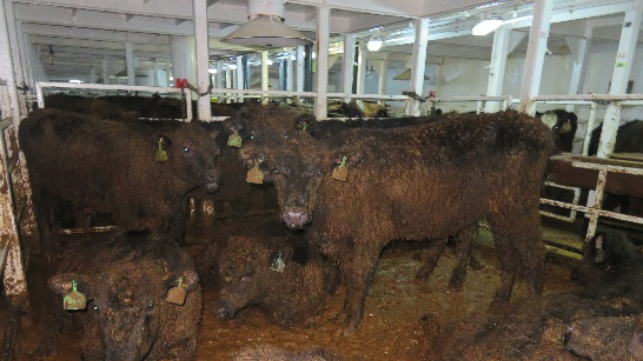New Zealand to Phase Out Live Export by 2023

The government of New Zealand has confirmed a plan to phase out all livestock exports by sea by 2023, making the country one of the first western nations to ban the practice altogether.
"At the heart of our decision is upholding New Zealand’s reputation for high standards of animal welfare. We must stay ahead of the curve in a world where animal welfare is under increasing scrutiny," said agriculture minister Damien O'Connor MP in a statement. "This decision will affect some farmers, exporters, and importers and a transition period will enable the sector to adapt. I acknowledge the economic benefit some farmers get from the trade, but I also note that support of it is not universal within the sector."
The government noted that live exports by sea make up just 0.2 percent of New Zealand's export revenue, and the decision is unlikely to have a significant economic impact.
New Zealand's independent National Animal Welfare Advisory Committee (NAWAC) had advised O'Conner's department that live exports should stop. The long voyage times from New Zealand to markets in the northern hemisphere make maintaining animal welfare on board inherently challenging, he said.
The welfare of animals after delivery has been an additional area of focus for activists. New Zealand live export activity is geared for dairy production and farming, and the country has not allowed shipments explicitly intended for short-term slaughter since 2008. However, animal welfare advocates assert that the destination markets (like China and Sri Lanka) have relatively low standards for livestock treatment, and that New Zealand's rules are not possible to enforce once the animals have been offloaded in the destination port.
The new ban was foreshadowed by new regulatory restrictions on the live export trade. Last October, New Zealand put limits on live export shipments in response to the sinking of the Gulf Livestock 1, which went down off Japan with the loss of 41 crewmembers and 5,800 cattle in September 2020. The restrictions will still apply during the phase-out period, and they include:
- focused PSC inspection of livestock carrier ships entering New Zealand
- restricting stocking density on vessels to 90 percent of current limits
- increased requirements for voyage reporting, including daily veterinary reports during voyages
- a 20 percent reserve fodder requirement to ensure enough feed for unplanned delays during the voyage.
The UK announced a partial ban on live exports in December, with carve-outs for poultry and for exports from Northern Ireland and Scotland.
